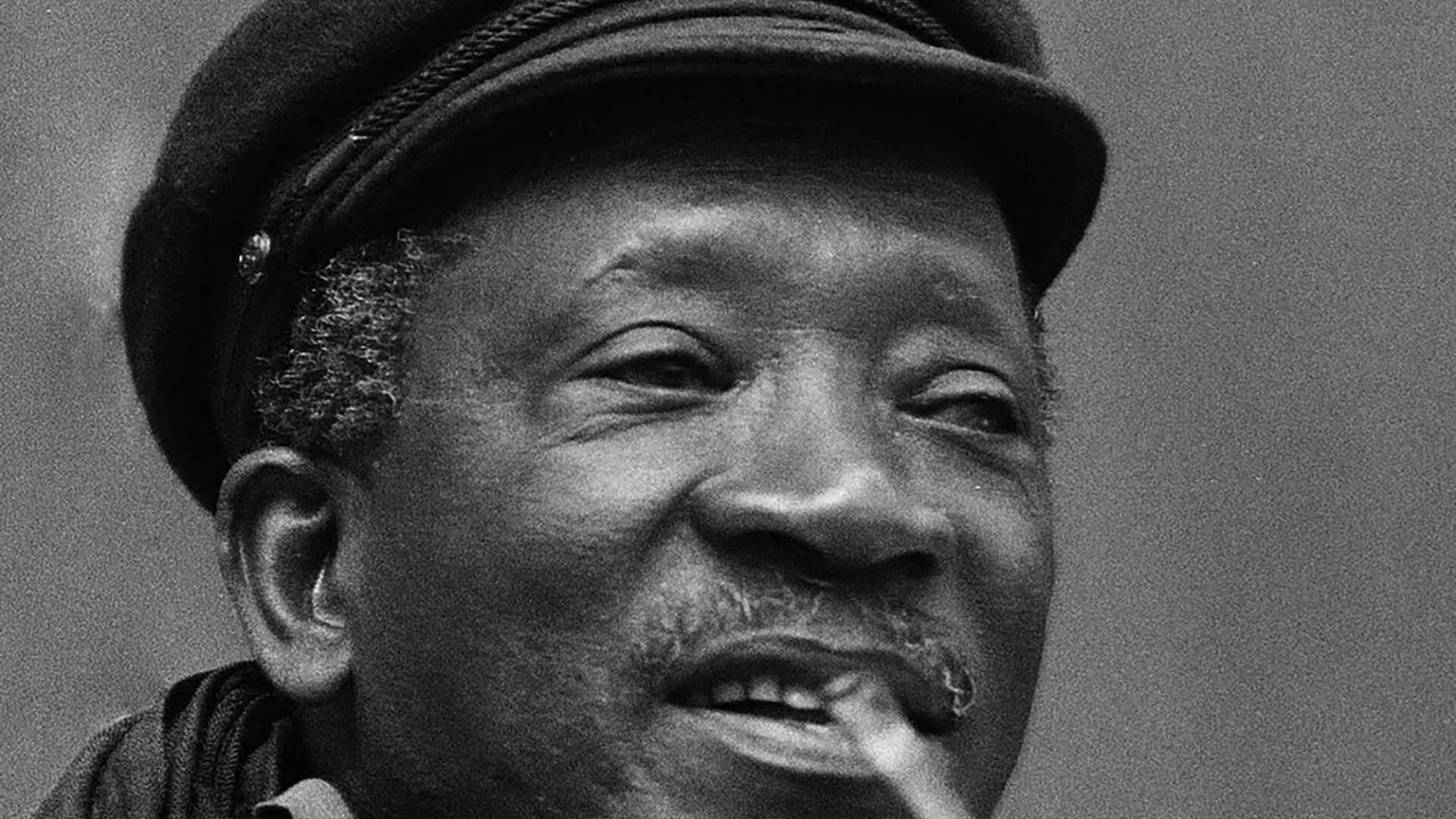October 12–24, 2023
Sembène 100
“[Sembène’s films] had an incredible impact on me … They opened my eyes to a reality that I’d only read about in the newspaper or seen depicted in benign terms in Hollywood pictures: what it’s like to live in a colonial society when you’re the one whose country has been colonized … A powerful experience.”
Martin Scorsese
The groundbreaking films of Senegalese writer and director Ousmane Sembène (1923–2007) form a body of work that stands in grand opposition to conformity, unafraid of contradictions, censors, or the scandals of colonialism.
Born in Casamance in French-colonized Senegal, Sembène was drafted and served with the tirailleurs in WWII. After the war, he worked for Citroën, then moved to Marseilles, where he was employed as a unionized dockworker. While recovering from a serious worksite injury, Sembène availed himself of the union’s library, reading the novels of Richard Wright and Jack London.
Many years later, Sembène spoke of novels as his first love, rooted still in this formative experience that proved it was possible, necessary even, to teach oneself to see the world through artistic encounters. God’s Bits of Wood (1960), his breakthrough novel about the Dakar–Niger Railway strike, came to be taught in classrooms, and was considered a significant work by supporters Jean-Paul Sartre, Paul Eluard, and Simone de Beauvoir. But it wasn’t enough: to be published required writing in French, and despite that language’s official status in Senegal, it was not the language of the people, many of them illiterate. Wolof, the region’s majority spoken language, would, after his French-produced feature debut Black Girl, become a crucial part of his cinema.
This project of decolonization was never simply theoretical for Sembène. After each of his films was released, he would set up screening tours across the country. This was his own version of a night school for the people, not to merely test their effectiveness with an audience, but to plunge into connections between the politics and artistry of everyday life. It is largely for this reason that Sembène was dismissive of home video, and prized the theatrical experience—by no means a guarantee in Senegal, where major French-established exhibitors continued to control cinema real estate post-independence.
Sembène first took up filmmaking at the age of 40, though he’d been thinking in images before then. (“Striking brutally through the cloud curtain, like the beam from some celestial projector, a single ray of light lashed at the Koulouba, the governor’s residence,” goes an opening passage of God’s Bits of Wood.) Until Senegalese independence in 1960, moving-image-making by West Africans had been stymied by the Laval Decree, which explicitly banned colonized peoples from filming themselves.
Addressing this gap, which extends between him and the early African cinema of filmmakers like Albert Samama Chikly, Sembène reinscribes the origins of West African art, both pre-colonial and post‑, in a way that allows for archetypes, oral histories, and religious figures to feature prominently in his work. He also freely manipulates cinematic time. The tension in many of his films derives from how we are given clear entry-points, deadlines, and historical markers, only to find out, too late, that a system of external pressure has been imposing itself.
Sembène intentionally alternated between the urban and rural, historical and contemporary in his work, and many of the pleasures and surprises of moving through Sembène’s array of films comes from seeing how the central characters of Mandabi anticipate the ones in Xala, or how decisions made in a state of crisis are differently configured in Emitaï, Ceddo, and Moolaadé.
Here in Vancouver, this will be the first chance to see Sembène’s feature films theatrically—aside from Black Girl, restored in 2016—in many years. The director’s key North American distributor, New Yorker Films, shuttered in 2009, leaving his work subsequently unavailable. The Cinematheque is proud to present restorations of six key works, including brand-new restorations of Emitaï, Xala, and Ceddo, along with his stirring late-career achievements Guelwaar and Moolaadé, the latter presented from an imported 35mm print.
“If you are a human being—if you believe for one second that justice is a must, that equality is a must, that racism must perish, that colonialism must perish, that the dominance of money, of capital over other forms of creating happiness for humans must stop—then you must see all the films of Ousmane Sembène.”
Aboubakar Sanogo, curator and professor, Carleton University
“Sembène represents the heritage of political [filmmaking] still possessed of a faith in social change, a faith not in film for profit’s sake or even film’s sake, but for people’s sake.”
Michael Atkinson, Film Comment
“It’s hard to think of any other artist so intimately and poetically concerned with what freedom and oppression actually feel like.”
Jonathan Rosenbaum, Chicago Reader
Acknowledgments
This retrospective would not have been possible without the assistance of Brian Belovarac (Janus Films). The Cinematheque is grateful to Jamie Mendonça (Curzon Film) for making the Vancouver presentation of Moolaadé on 35mm possible.
Media
List of Programmed Films
| Date | Film Title | Director(s) | Year | Country |
|---|---|---|---|---|
| 2023-Oct | Black Girl | Ousmane Sembène | 1966 | Senegal . . . |
| 2023-Oct | Mandabi | Ousmane Sembène | 1968 | Senegal |
| 2023-Oct | Ceddo | Ousmane Sembène | 1976 | Senegal |
| 2023-Oct | Emitaï | Ousmane Sembène | 1971 | Senegal |
| 2023-Oct | Xala | Ousmane Sembène | 1974 | Senegal |
| 2023-Oct | Moolaadé | Ousmane Sembène | 2004 | Senegal . . . |
| 2023-Oct | Guelwaar | Ousmane Sembène | 1992 | Senegal |
